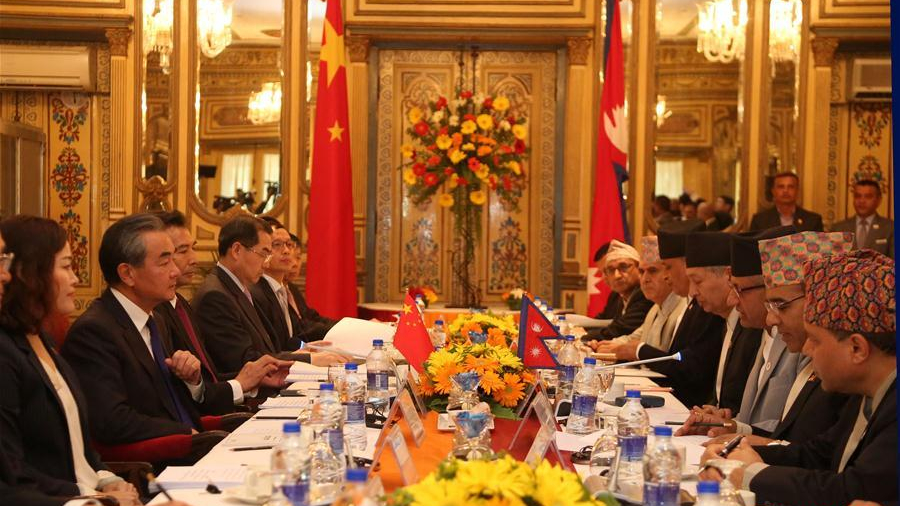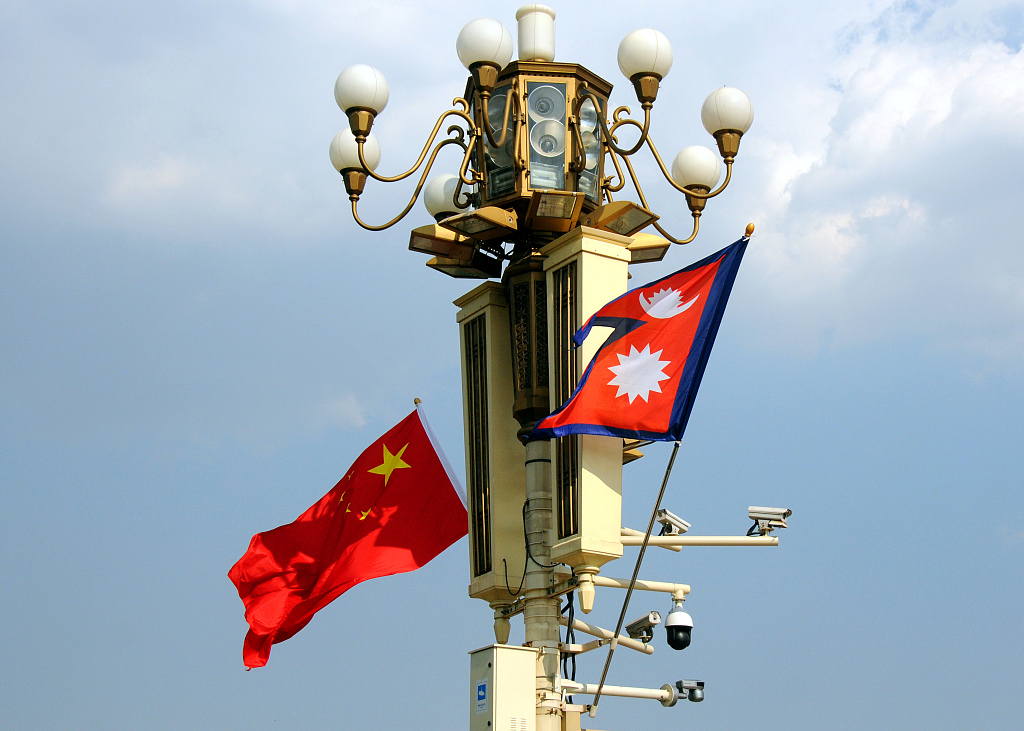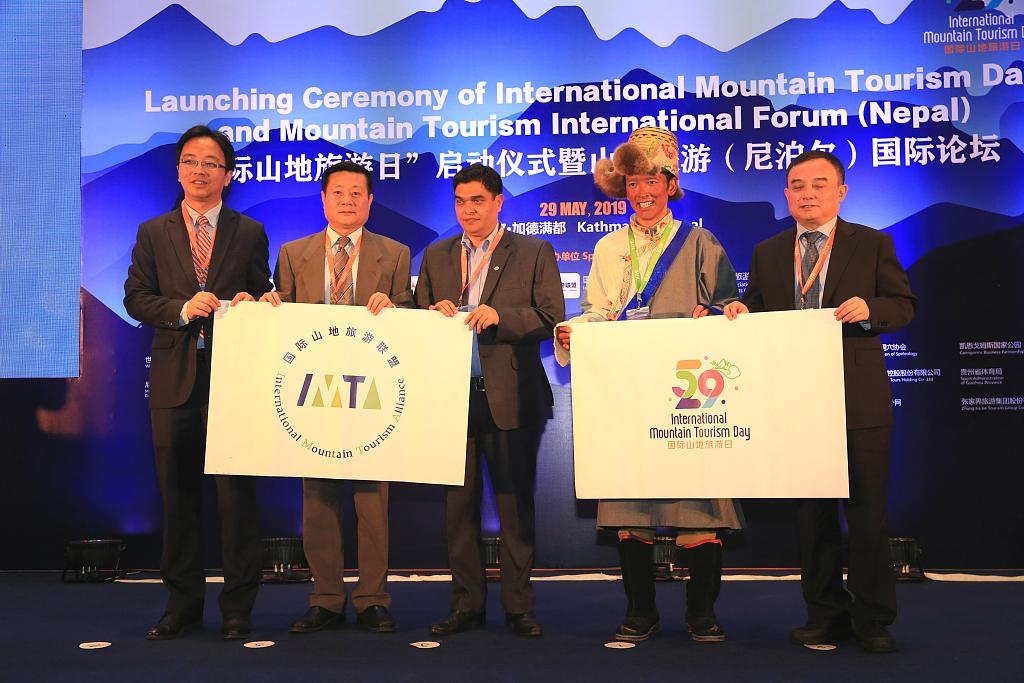
Chinese State Councilor and Foreign Minister Wang Yi (2nd L) meets with Nepali Foreign Minister Pradeep Kumar Gyawali (3rd R) in Kathmandu, Nepal, September 9, 2019. /Xinhua Photo
Chinese State Councilor and Foreign Minister Wang Yi (2nd L) meets with Nepali Foreign Minister Pradeep Kumar Gyawali (3rd R) in Kathmandu, Nepal, September 9, 2019. /Xinhua Photo
Editor's note: Mahendra Subedi is a Nepali journalist currently in Beijing. The article reflects the author's opinions, and not necessarily the views of CGTN.
As Beijing and Kathmandu on Wednesday announced the state visit of Chinese President Xi Jinping to Nepal from October 12 to 13, a strong diplomatic wave has circulated among South Asian scholars, including those in Nepal.
The maiden visit of President Xi to Nepal, which comes after the completion of the first year of his second presidential inning, is expected to be a historical diplomatic journey. This is the first time a Chinese president will visit Nepal in 23 years, after President Jiang Zemin's trip in 1996.
The long-awaited visit to the birthplace of Lord Buddha is an exuberant affair and well-cherished on multiple dimensions. Therefore, the visit is a beacon to further cement our bilateral ties, openly share our weal and woes, and exchange views for mutual benefits.
This visit by President Xi should be looked at in a couple of perspectives in the changing geopolitical and economic contexts since the previous cannons of power are blurred while the new ones are in the making.
First of all, President Xi's visit should be described as his good diplomatic gesture toward China's immediate neighboring countries. This is more important in the context that Nepal, China's all-weather friend, has a communist government in place with almost two-thirds of the majority in the parliament and there exists political stability under the leadership of the Nepal Communist Party (NCP).

Likewise, the Communist Party of China and Nepal's ruling NCP enjoy a very cordial party-to-party relationship regarding some ideological questions. And, such a political relation has further deepened in the present day to the extent that the NCP recently conducted a scholarly debate, though some critics described it as "training," on Xi Jinping Thought - a strong message of mutual trust.
Another important factor that brings Nepal closer to China is the former's huge infrastructure gap, thereby needing China's support and foreign direct investment (FDI). On the development front, Nepal is just like China in the late 1970s and early 80s and is thus waiting for rapid economic development and FDI.
As a crucial development partner for Nepal, China is supporting Nepal in developing some ancient archaeological heritage sites, energy projects, and physical infrastructures, among others. Both sides are preparing well for fruition out of this trip. Nepal has attached the highest importance to Xi's visit because Xi's successful visit is tantamount to certification of Nepal's fame in the international arena as well as amplification of Nepal's tourism industry.
What's on agenda?
First and foremost, winning the confidence and making sure that both the countries are serious about each other's concerns should be the key agenda of the much-awaited visit. Many in Nepal expect Xi's visit would unlock multiple opportunities for Nepal from China's development in recent decades.

The opening ceremony of International Mountain Tourism Day in Kathmandu, Nepal, May 29, 2019. /VCG Photo
The opening ceremony of International Mountain Tourism Day in Kathmandu, Nepal, May 29, 2019. /VCG Photo
This is also because China's Tibet Autonomous Region is a crucial part of further opening up trade, transit, cross-border special economic zone services and cultural exchanges between China and other South Asian countries via Nepal. To expand China's ties with other South Asian countries, Nepal could become a bridge.
Infrastructure and trade promotion through connectivity development would be the next key agenda of Xi's state visit. This will pave the way for Nepal to reap benefits from China's technical and technological expertise on infrastructure development. And the leaders of the two countries will chart new plans for the development of Nepal-China relations, jointly usher in a new era of the rapid development of bilateral relations.
More importantly, the leaders are expected to sign an agreement for the development of some projects, mostly relating to infrastructure and energy. The projects would be developed under the Belt and Road Initiative (BRI) framework, the first of its kind since Nepal joined the BRI in 2017. Such projects, once implemented, are expected to fill Nepal's infrastructure gap, create a huge number of jobs and make Nepal a vibrant bridge to bring China and India much closer.
So, Nepal and China will have more bilateral and multilateral engagements in the offing while the South Asian landlocked country expects to attract more and more Chinese investors and tourists. Above all, Nepal wants to and can benefit from China's peaceful development.
(If you want to contribute and have specific expertise, please contact us at opinions@cgtn.com)